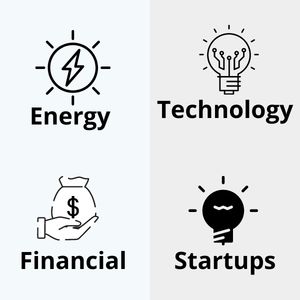A BIG OPPORTUNITY FOR
YOUR BUSINESS GROWTH.
Valueteam provides company valuation services in Singapore transformative insights to turn complex transactions into opportunities for growth and long term advantage. Independent and advanced business valuation services in Singapore.
Get a Free Consultation for Your Valuation Needs
Company
Our team of experts assists in the company valuation services in Singapore, IPO valuation, M&A valuation, equity valuation, etc to assist our clients to make quality decisions.
Intangibles
We help companies in understanding the value of their intangibles like brands, licenses, software, contracts, customers for strategic purposes.
ESOPs
Our valuation experts use an unbiased, data-driven, detailed approach to provide ESOPs related valuation and its implementation in their Company

Company Overview
Valueteam is the valuation specialist that provides transformative insights to turn complex transactions into opportunities for growth and long-term advantage. We offer best-company valuation services in Singapore enabling our clients to make informed decisions for continued growth and success. Valueteam provides specialized company valuation services in Singapore that focus on business valuation and its related services only. We believe valuation is a very complex process and our clients deserve the right advice from the experts. We are a one-stop valuation services company that provides all kinds of valuation from company to intangibles to other complex valuations.
Why Choose Valueteam

We are a specialized valuation consulting company in Singapore providing clients with valuations related services at very competitive rates. We offer best in class valuation services, enabling our clients to make informed decisions for continued growth and success.
Transparent
Approach
Our Services

We are a specialized business valuation, company valuation, equity valuation, IP valuations, brand valuation, plant and machinery valuation, dispute valuation, PPA valuation, ESOP valuation, at very competitive rates.

Buy & Sell Valuation
Revolves around the fact as to how much a buyer can get from that business by taking into account the various risk factors involved.

ESOP Valuation
We offer reliable ESOP valuation services and advisory solutions. Independent and sophisticated valuation solutions.

Company Valuation
Your reliable partner in internal company valuation services in Singapore. We provide one-stop valuation solutions to our clients.

Intangibles Valuation
Trusted name to meet your organisation’s intangibles services across all sectors and industries, at any business stage.

Brand Valuation
One of the Leading Providers of Specialised Brand Valuation Services. Customized valuation packages at competitive rates.

M&A Valuation
We Offer Reliable Mergers and Swap Ratio Valuation Services. Independent and sophisticated valuation solutions.

Startup Valuation
Our Start-Up valuation services will launch your business to success with deep experience in understanding and valuing startups.

Business Planning
Our services include corporate valuations, business, strategic planning, market study, strategic partnerships, revenues strategy.

Purchase Price Allocation
Independent and reliable solutions to meet your purchase price allocation needs. Customized valuation packages at competitive rates.

Convertible Instruments Valuation
Convertible instruments converts into equity at some specified events like M&A, specified time, change of management, liquidity events, etc

Due Diligence
One-stop solution from an experienced team. Reliable due-diligence advisory services and Independent valuation solutions.

Plant & Machinery Valuation
We offer reliable and strategic valuation advisory to assist you to improve or achieve the right valuation for the defined period of time.
Company Overview
Knowledge and Expertise in Valuation
Our team of valuation professionals is headed by an expert with more than 10 years of experience in the valuations industry. We have the requisite industry knowledge and expertise for delivering accurate and independent valuations that bring results. We have successfully advised clients across different industries and segments on a wide range of business requirements.

Company Valuation
Our professional finance team values your company on the basis of its business strength, financial performance, future plans, management team’s experience, and skills to provide you with the most reliable company valuation to meet your strategic requirements.

Share Valuation
Valueteam professionals are equipped with in-depth technical knowledge and will help you in obtaining a comprehensive share and equity valuation of your company that enables you and your stakeholders to make significant business decisions including buy, sell, ESOPs, invest etc

Intangible Valuation
Our valuation professionals will assit you to find the right value of your intangible asset in accordance with internal and market factors, using the complex valuation methods and expertise. Our team provides well-researched valuation services so that your intangibles, brands, contracts, customers etc will valued at right price.
We can Help you to Grow
Your Business
We use our valuable knowledge gained in a span of more than 20 years to provide best valuation services as per clients requirement and assist to achieve their business goals.
Years of Team Experience
Project Completed by Team
Satisfaction Level
A Brief Introduction to Our Services
We are a specialized business consulting company in Singapore providing clients with valuations, business plans, and research services at very competitive rates.



Best Industry Practices
We value our clients and focus on helping them grow their businesses, turning their ideas into reachable and tangible goals. We understand that they worked hard for it to succeed.
Value your Business
We offer best-in-class valuation services, enabling our clients to make informed decisions for continued growth and success. We help organizations across all industries.
Experienced Team
We have a team of Chartered Valuer, CVA, MBA, and Finance Experts with more than 20 years of experience to give you the best and quality services in the valuation as per requirement, helpful in achieving your business goals.
Our Satisfied Clients
Valueteam’s solutions are of high-quality concerning content and design.
Valueteam offered us excellent valuation and due diligence solutions when we were planning to acquire a company. We will work again with them on our future projects.
CEOSingapore
Valueteam provided us outstanding and prompt valuation services at short notice. Their team was always available for interaction and conducted a thorough study to understand our requirements.
Business HeadSingapore
Our Partners

Our Clients in Various Industries

